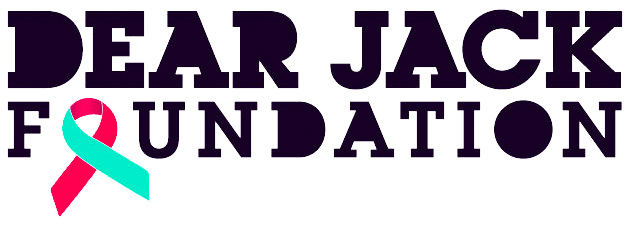Dear Jack,
If being diagnosed with cancer is one of the most frightening experiences you can have as a young adult, then surely surviving cancer is one of the most emotionally complex. Imagine standing on a stage to receive an award after crossing the finish line in a race you never intended to enter. All the spectators are cheering for you, but you’re secretly wondering 1) when someone is going to inform you that there was a mistake and you didn’t ACTUALLY cross the finish line, 2) if anyone else realizes the “finish line” is super arbitrary, keeps moving, and doesn’t mean you get to stop running, 3) what in the world you did to deserve getting this far compared to others working just as hard out there as you, 4) how you’re going to continue sitting with the knowledge that so many people had to make sacrifices along the way for you to get here, and 5) whether it would be super rude to say that you kind of just want to go curl up and rest by yourself even though you know you’re supposed to stand there all smiling and happy.
Welcome to survivor guilt, although perhaps it would be more accurately called “survivor’s mixed up jumble of really hard and conflicting emotions.” On its most basic level, survivor guilt refers to the set of feelings related to surviving cancer when others did not. It is often linked to more existential, high-pressure questions. Why did I survive and what am I supposed to do now? What makes me so special? Why did I get cancer in the first place? What lesson am I supposed to be learning through all this?
Survivor guilt often co-occurs with another very large emotion that has a way of quickly filling a room and making it hard to breathe – anxiety. Simply put, it is very scary to watch other young adults suffer and pass away from the very same illness as you. Sometimes those young adults were the very fellow patients or survivors you most looked up to – the ones with the most encouraging words, the biggest smiles, the fiercest determination to make one more lap in the hospital hallway or pull one more smile out of you – the ones who made you feel like fighting because they fought so hard. If they did not survive, is it only a matter of time until I too get unlucky? When will my luck run out? The sheer injustice of it all is suffocating.
Survivor guilt isn’t just tough emotionally; it can also lead to sub-optimal medical care and reduced quality of life. For example, if you are experiencing survivor guilt, you may not ask your doctor about topics like mild aches and pains, decreased libido, depression or anxiety, or other seemingly “minor” concerns compared to, say, dying. Because even the most brilliant of doctors cannot read minds, they have no way of knowing what physical and emotional barriers are keeping you below the quality of life you’re capable of, and cannot intervene or offer solutions. Survivor guilt can make you feel unjustified to ask questions about what you may come to think of as the “first world problems” of cancer survivorship.
So what the heck do you do about survivor guilt because after all, as with any other emotion, it typically doesn’t do much good to try to just NOT feel it, even if intellectually you understand that it isn’t a very productive emotion. Here are a few ideas to consider, all of which are skills developed over time, sometimes with the help of a professional:
1) Shift your goal from getting rid of distress (including survivor guilt) to tolerating distress. You can learn to co-exist with survivor guilt, and by creating space for it as one of a range of natural survivor emotions, reduce its weight and its day-to-day impact. A motto I often encourage my patients to adopt is “do it anyways.” Think that talking about sexual functioning or intimacy issues feels silly or embarrassing when you should just be grateful to be alive? Fine – feel silly or embarrassed – but ask your doctor anyways. Feel that you’re not justified in asking for help for depression or anxiety after all you’ve already put your loved ones through with your cancer, and that feeling anything other than grateful and happy is shameful? Fine – feel unjustified and ashamed (I wish you wouldn’t) – but ask for help anyways.
2) Externalize the voice. It is helpful to differentiate between thoughts and reality. Our brains, even when not exhausted from surviving cancer, come up with all sorts of unhealthy and unhelpful inner narratives. Learn to “externalize” or even personify thoughts driven by survivor guilt, and to recognize those thoughts as the voice of Survivor Guilt versus a reflection of reality. This empowers you to listen for other voices, such as the voices of Reason, Self-Respect, and Self-Compassion. When you recognize thoughts as simply thoughts, you then have a choice about which thoughts and voice you attend to at any given time (and I recommend picking the most helpful voice!). You might then even learn to “talk back” to unhelpful thoughts, and learn to reframe or change them into more helpful ones.
3) Accept that conflicting emotions can and do co-occur, and that this is okay. It is perfectly acceptable and appropriate to be scared out of your mind, relieved that you’re still here, incredibly sad that others are not, angry beyond belief, and grateful all at once. Survivor guilt is one of a plethora of emotions you’ll continue to feel throughout survivorship. Don’t give any single emotion too much of a platform, and above all, give yourself permission to experience all these emotions and move through them at your own pace.
Ultimately I do not know the answer to why some people survive cancer and others do not. I DO believe that as human beings we crave a story that makes sense, because the world is less scary if it makes sense. I also very much believe that we are authors of our own story, at least in the sense that we decide what we do with the great plot twists that happen to us along the way. If you’re reading this blog post, your story is not over. I don’t think the question of why that’s the case is as helpful as the question of what comes next. How will you live your life since you are in fact still alive? How will you integrate into your own life the attributes and strengths of those who no longer are, and by doing so carry their spirits forward? What values will you align your life around as you move forward? And will you give yourself permission to continue to hope and love and be grateful, even amidst the sadness and fear?
Author: Andrea Maikovich-Fong, PhD, ABPP – Andrea is a board-certified clinical health psychologist who has worked extensively with cancer patients and survivors. She is currently working for Kaiser Permanente in Denver, Colorado.


